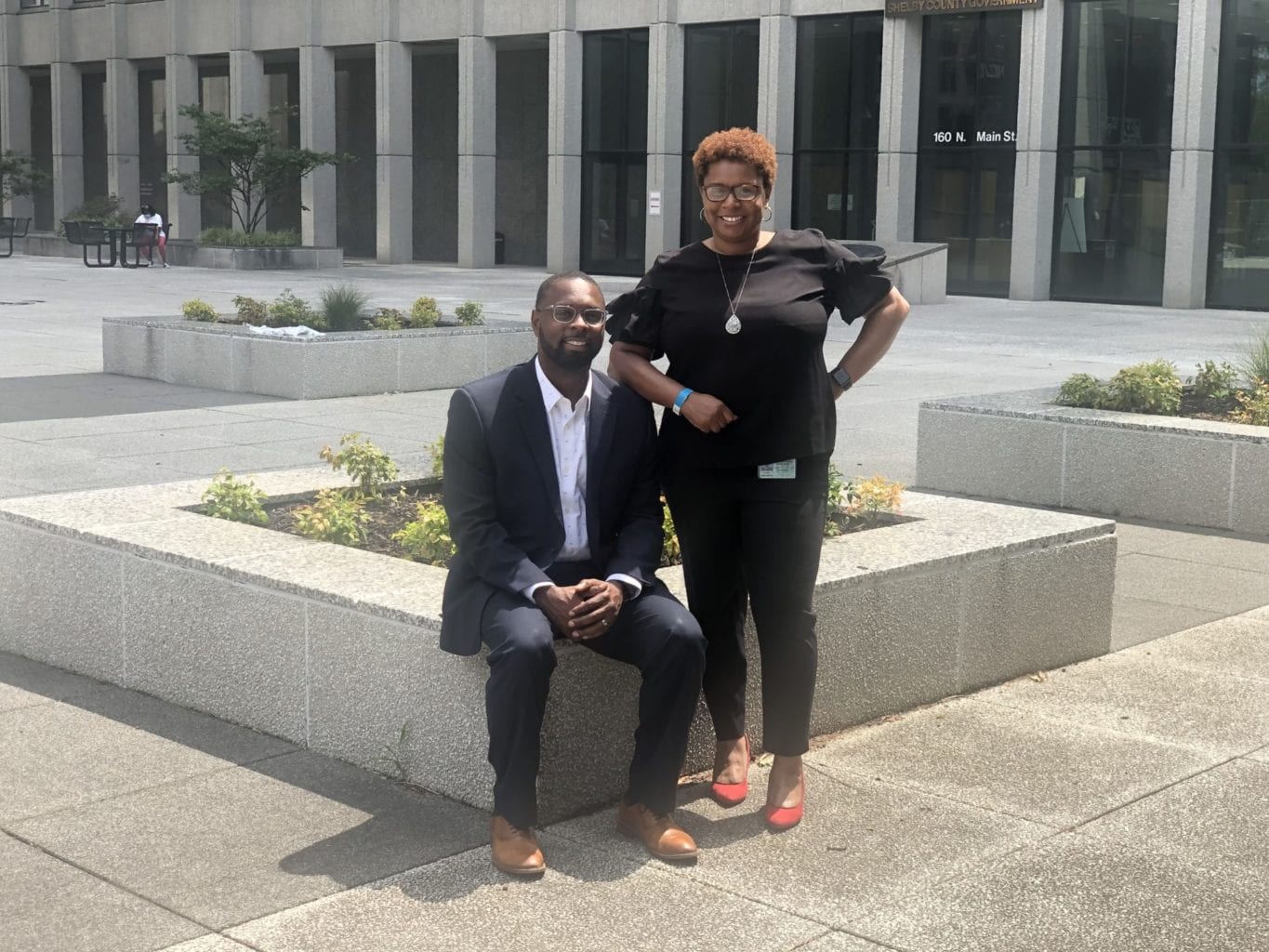
Shelby County is looking at more than 9,000 evictions on low-income families hit hard by COVID-19-related shutdown and job loss.
Now, thanks to a sibling collaboration of public administrators, thousands could be saved from joining the homeless ranks.
Involving General Sessions courts in the process is key.
“We knew from the start of this pandemic that significant impact would be felt on both the health and economic fronts for Shelby County residents,” said Dorcas Young Griffin, director of Shelby County Community Services. “Keeping every family in their home is top priority.”
Griffin’s brother, Paul Young, director of Housing and Community Development (HCD) for the City of Memphis, also shares some of the burden for making sure no family is turned out of their home.
“Housing insecurity in this community is a serious issue,” said Young. “This potential displacement of individuals and families is devastating. Those who could least afford it have had to suffer the effect of the shut-down, job loss and dealing with the illness, itself.”
Many states, including Tennessee, are lifting the moratorium on eviction proceedings, which was put in place to relieve the financial strain on families, whose main bread winners had lost jobs during the pandemic.
Both agency heads anticipated what the eviction landscape might look like after the legal moratorium was lifted.
Two months of collaborative work by Griffin and Young with community partners was unveiled last week before a Shelby County Commission committee.
The Eviction Settlement Fund will apply “the best use of the allocated money” to reverse eviction orders.
The community partners include Memphis Area Legal Services, Neighborhood Preservation Inc., University of Memphis Law School, Innovate Memphis, General Sessions Civil Court judges and clerk, and several other local agencies.
An allocation of nearly $2 million from the federal Coronavirus Aid, Relief, and Economic Security (CARES) Act will be available to directly pay negotiated settlements to property owners, allowing tenants to remain in their homes.
In addition to the legal and financial support, tenants will be linked to more long–term financial counseling and social services that will be helpful to decrease the likelihood of future eviction, Griffin said.
Young said involving the actual players in Shelby County evictions – the civil General Sessions judges, will be a crucial factor for insuring the best possible use of CARES dollars to cover everyone who needs help.
Staff from Legal Services and the University of Memphis Cecil C. Humphreys School of Law will engage landlords in negotiations for payment to resolve eviction filings.
“We are counting on the compassion of landlords who need payment, but realize that the effects of the pandemic have been hard on everyone,” said Young. “Strong legal negotiations on behalf of the tenants will get landlords paid and families remaining in their homes. It’s a win-win for everybody.”
The Eviction Settlement Fund is only one of many efforts to address housing insecurity in Shelby County.
“We are addressing this present eviction crisis, but long-term plans and actions will be necessary,” said Griffin. “Housing challenges have existed for many years and have only been exacerbated by this pandemic. We remain committed to using even more aggressive, collaborative measures to improve the quality of life for all Shelby Countians.”
Both landlords and tenants involved in a pandemic-related eviction should complete a screening questionnaire at: www.home901.org/covid-resources.